|

by Paul Cudenec
August 02,
2022
from
WinterOak Website
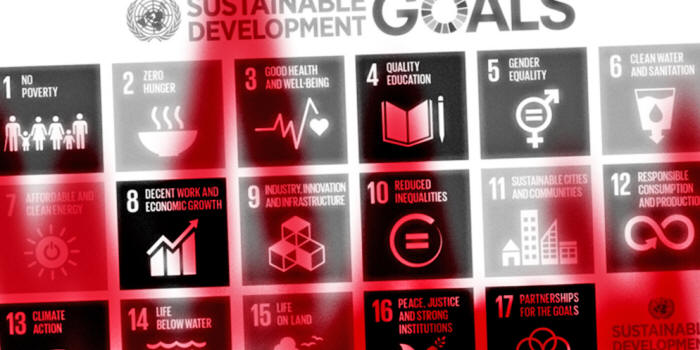
The so-called
Great Reset is nothing but the
extension and violent acceleration of a longstanding process.
Over the decades, I have often despaired at the general apathy of my
fellow citizens in the face of the dark forces which I could clearly
see - and feel - gathering.
Wondering how we could ever hope to see a mass uprising against the
dominant system, I sometimes comforted myself with the thought that
one day "they" would become so arrogant, or impatient, that they
would push things too far, beyond the limits of what humankind is
collectively prepared to tolerate.
What we have been experiencing for the last two years could well be
that moment, so that the Great Reset would prove to be not just the
extension of the existing process, but its culmination, the hubris
which announces its final demise, its nemesis.
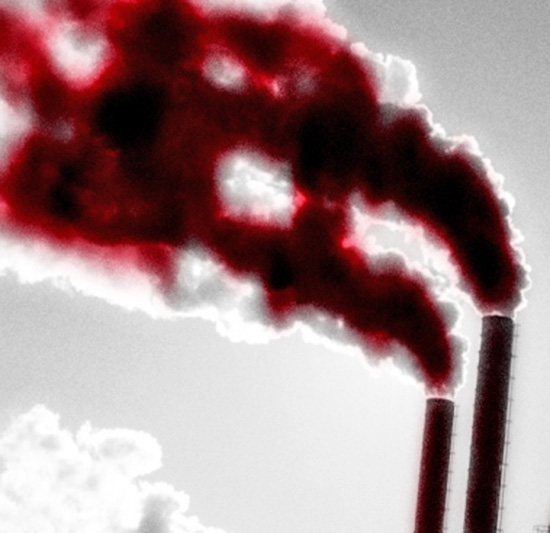
So what is this "process" I am talking about?
There are lots of
different ways of describing it.
It is the increase of centralizing
power, the tightening of control, the growth of "the economy", the
ever-closer convergence of power and money.
Today I want to focus on one concept which I think is key to
understanding the essence of this process, namely "development".
The term, in English, is a very broad and ambiguous one, which
allows it to be seriously misused and manipulated.
Sometimes it is used in the intransitive context to refer to
something that happens by itself, from the inside, like the
development of a child's abilities or character as it grows into an
adult, the development of somebody's understanding or the
development of a particular culture.
In this sense, it carries the implications of being natural and
positive - resonances which serve to disguise the quite different
qualities of other applications of the same word.
Development used in a transitive sense refers to actions taken from
the outside to develop a certain thing.
It could refer to what I am doing right now - the development of an
idea or an argument.
This kind of development is the act of
organizing various elements (information, personal experience,
opinions) in order to create something which is (hopefully!)
coherent and useful.
Again, this sense carries positive implications which can be used to
camouflage the reality behind other processes with the same semantic
label.

In terms of the historical process I referred to, development could
broadly be applied to the industrialization which began in the
country of my birth in the 18th century and subsequently spread
across what we term the West.
Here we can immediately see how the other meanings of the word
"development" obscure our understanding of the industrial variety.
The first, intransitive, association can lead us into imagining that
industry was something that "developed" organically, all by itself,
as the unfolding of a natural socio-economic evolution.
And the second, transitive, association could make us assume that
industrial development was a positive process of using our
collective intelligence to organize something useful for society.
Conventional opinion within industrial society usually amounts to a
combination of these two, faulty, interpretations:
people tend to
imagine that the natural evolution of our collective intelligence
leads us to organize this inevitable and ongoing development.
Continuous industrial development has been the background to all our
lives, but it is not necessarily something of which we are always
conscious.
For me, the form in which it first became visible and real was that
of what in England is called "property development", namely the
building of houses, shops and factories on what was previously
"undeveloped" land.

My first encounter with this phenomenon was when I was about ten
years old and living on the very southern edge of the London
conurbation.
One summer day I discovered, with some school-friends, what seemed
to me like an amazing paradise - a meadow, ringed with trees, with a
tiny stream running through the middle of it, over which we leapt
time and time again, tumbling and laughing into the lush green
grass.
Some time later I went back there to taste again that moment of pure
happiness and discovered that somebody had left mysterious piles of
large concrete pipes in our field.
Being children, we didn't care too much, had no idea what all this
meant, and happily spent the afternoon clambering around, and
through, these pipes.
But the second time I went back, the field was a housing estate and
there was no more grass, no more stream, no more playing.
A few years later, my mother bought, as a present for an elderly
friend, a book of photographs of the local area dating from the
beginning of the 20th century, when this lady was a girl.
Glancing through the images, I noticed that one of them apparently
showed a road that I knew well. But I couldn't believe it was the
same place.
In the photograph was a simple country lane, surrounded on all sides
by trees, along which a man was leading a horse and cart.
The road that I knew in the 1970s, although still called a "lane",
was lined with identical 1930s houses along its whole length and was
intersected by one of the busiest traffic routes out of London.
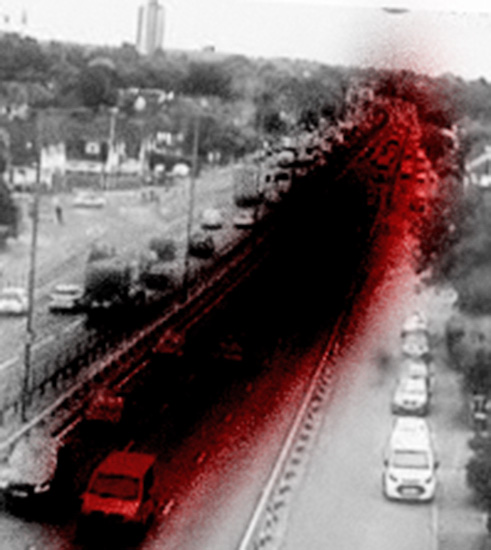
Suddenly I understood why older people had always referred to the
local suburban shopping parade as "the village".
It really had been a
village when they first knew it!
How could everything have
changed so quickly, within the living memory of people I personally
knew?
I could never see the area in which I had always lived in the same
way again and later chose to live and work outside of London, in
Sussex, where I discovered villages and country lanes which no
longer existed in the area where I grew up.
For a long time I was happy there. I felt I was breathing an air
which had been denied me for too long.
But, of course, I wasn't safe from the advance of development, whose
principal requirement is that it must never slow down, let alone
stop.
All around me were appearing new housing developments, new roads to
serve the houses, more new houses to fill the spaces opened up by
the new roads, new shopping precincts to serve the people living in
the houses and more new roads to take them there.
Both in my work as a journalist on a local newspaper and in my
parallel role as a campaigner trying to protect the countryside, I
came to understand the mechanisms by which this development came to
happen.
The first thing I observed was that there was always local
opposition to any proposed development on a greenfield area - the
bigger the project, the greater the opposition.

But this opposition was very rarely successful.
Several methods were used to ensure that development triumphed over
the wishes of the local people.
The first was for local politicians and officials to denigrate
opponents of the scheme in question, in which ever way seemed most
appropriate.
If the opponents were local people living close to the proposed
development, they were selfish individuals termed NIMBYs - Not In
My Back Yard.
If people from further away were involved, who could not be accused
of having a purely personal interest, they were dubbed "outside
agitators" or "rent-a-mob troublemakers".
In this way, no dissent could ever be seen as legitimate.
Alongside this approach came the inevitable narrative that the
development was badly "needed", providing homes for families, jobs
for workers, or a "boost" for the local economy.
This argument was welded to the message that there was something
inevitable about the whole process, that losing green space to
concrete and tarmac was simply something one had to accept in life.
I also came across a degree of corruption, of course, of very close
connections between local officials and the property development
businesses whose projects they authorized.
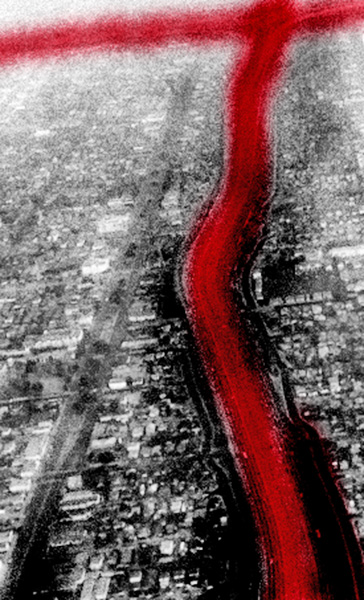
But behind these levels of propaganda and corruption was something
else, something even more important: the "need" for development was
written into the bureaucratic planning structures devised by central
government, with which local authorities had to comply.
All that the local council could really decide was where this
development would be accommodated.
So even if the people living in an area were unanimously against a
certain development, even if they had somehow, miraculously, managed
to elect representatives who were prepared to respect their
opposition, all that could be achieved was,
for that development
to be delayed, modified in some way so as to make it more
acceptable or, at the very best, displaced to some other corner
of the local area where the residents were less vociferous or
influential.
The overall process of
development itself was sacrosanct and officially ensured.
All the language and arguments in favor of development therefore
served not so much to convince people that it was necessary, as to
cloak the reality that it would in any case be imposed on them
against their will by central power.
This is important, as we will see later…
There are, of course, lots of different kinds of "development".
Wolfgang Sachs describes, in
The Development Dictionary, a
very insightful resource on this subject, how the idea of
development used to be based on the notion of a nation-state's
transition from agrarian to industrial status.
"The state was
conventionally considered to be the main actor, and the national
society the main target, of development planning". 1
But in the closing
decades of the last century the phenomenon outgrew the national
scale and turned into globalization.
For Sachs, development
and
globalization are one and the same phenomenon.
He says:
"Globalization can be
aptly understood as development without nation-states". 2
A narrative is always
needed to dress up development and sell it to the public.
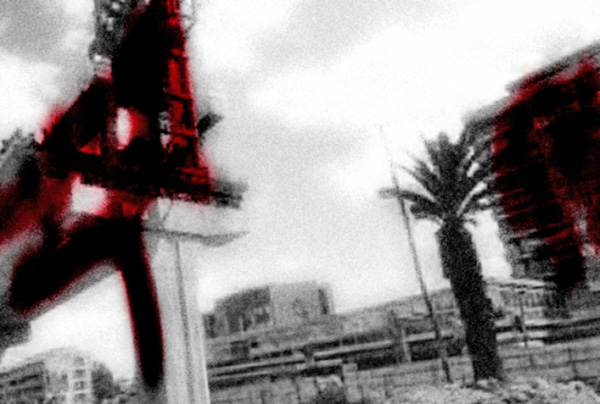
As Gustavo Esteva points out in the same book, the promotion
of development as a good thing, as a worthy and humanitarian cause,
depends on the theoretical existence of,
"the undignified
condition called underdevelopment". 3
He writes:
"In order for someone
to conceive the possibility of escaping from a particular
condition, it is necessary first to feel that one has fallen
into that condition.
For those who make up
two-thirds of the world's population today, to think of
development - of any kind of development - requires first the
perception of themselves as underdeveloped, with the whole
burden of connotations that this carries". 4
This idea of
"underdevelopment" is, he concludes,
"a manipulative trick
to involve people in struggles for getting what the powerful
want to impose on them". 5
The term "poverty" is
used in the same way.
Certain ways of life are
designated with this term and the people and communities involved
are identified as a "problem" for which development can provide the
solution.
Those pushing this agenda are happy to cynically exploit the naivety
of those who fall for the lie and enthusiastically jump aboard the
bandwagon of "helping" those who have not yet been turned into what
Otto Ulrich calls,
"a mechanical cog in
a great production apparatus dominated by the world market".
6
In Europe, a key
institution promoting development is The Organization for
Economic Co-operation and Development, founded sixty years ago.
7
Its slogan speaks of,
"better policies for
better lives", by means of, again in its own words,
"accelerating development".
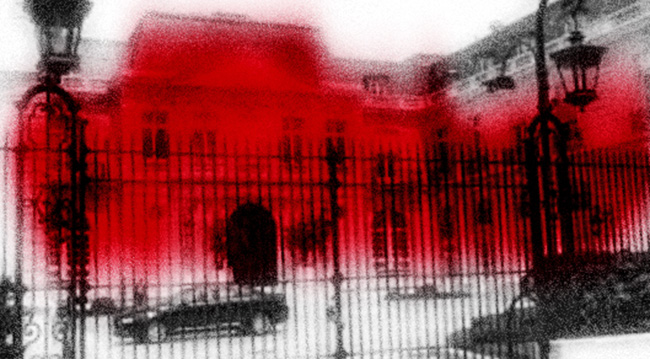
This body started out its life as the Organization for European
Economic Co-operation (OEEC), formed to administer the USA's Marshall
Plan aid for the "building back better" of Europe after the
devastation of the Second World War.
The OEEC officially turned into
the OECD at a ceremony in 1960 at
the Chateau de la Muette in Paris, which is still the organization's
headquarters.
Coincidentally, this building originally belonged to a member of the
French branch of
the Rothschild family, who have
played such a key historical role in development, of railways, all
over the world, of the Suez Canal, of mining, and who were also
pre-eminent, as the company boasts on its website, in the,
"development of the
sovereign bond market, beginning in Europe and Russia, and
expanding to every continent". 8
Rothschild and Co add
that the foundations for their current success were laid during the
Second World War when they established their business presence in
the USA and were thus able to vastly expand their global operation,
"opening offices in
every major market around the world".
A key role in pushing the
idea of development has also been played by
the United Nations, set
up on the initiative of the USA at the end of the Second World War.
In the Preamble to its Founding Charter in 1945, it announced its
determination,
"to promote social
progress and better standards of life... and to employ
international machinery for the promotion of the economic and
social advancement of all peoples". 9
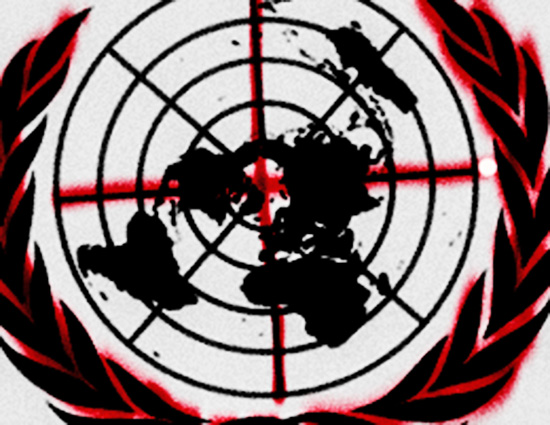
The "First UN Development Decade" between 1960 and 1970, which
claimed to identify a problem with "underdeveloped" people, again
insisted that its aim was to improve the quality of their lives.
This spin was
reflected in the name of the development body it spawned in
1963, the United Nations Research Institute for Social
Development.
Social development.
Nothing to do with
money...!
In 1970 it launched an
International Development Strategy and an associated UN resolution
announced a unified approach to development and planning,
"which would fully
integrate the economic and social components in the formulation
of policies and programs".
This declared that its
aims were to,
"leave no sector of
the population outside the scope of change and development" and
"to give high priority to the development of human potentials...
the provision of employment opportunities and meeting the needs
of children". 10
That is to say the
"needs" of children as defined by those who aim to extract maximum
profit from developing their human potential.
In 1986 the UN went even further when it published its
Declaration on the Right to Development. 11
Although this text clearly identified the aim of establishing what
it called,
"a new international
economic order", it hid this agenda behind the absurd statement
that "the right to development is an inalienable human right".
"States have the primary responsibility for the creation of
national and international conditions favorable to the
realization of the right to development", it insisted.
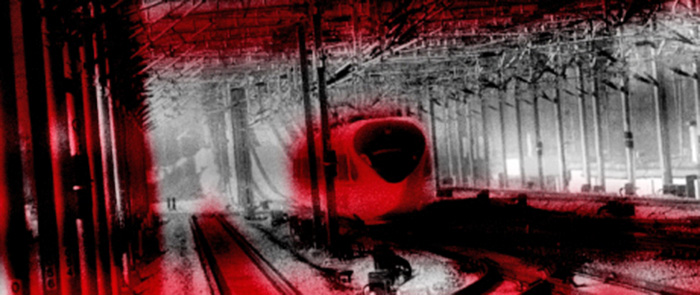
"States have the duty
to co-operate with each other in ensuring development and
eliminating obstacles to development".
"Sustained action is required to promote more rapid development
of developing countries".
And the final passage,
Article 10, declares:
"Steps should be
taken to ensure the full exercise and progressive enhancement of
the right to development, including the formulation, adoption
and implementation of policy, legislative and other measures at
the national and international levels".
And that is what we have
seen shaping up over the subsequent decades...
In 1990 the United Nations Development Program published its
first Human Development Report, defending the inalienable
right of all human beings to be developed. 12
Then ten years later, in 2000, it launched its
Millennium
Development Goals, based on the International Development
Goals drawn up at Chateau de la Muette by the OECD's Development Assistance Committee.
13
Private-public partnerships were very much encouraged.
Goal 8 was,
"to develop a global
partnership for development", which could mean "cooperation with
pharmaceutical companies" or making available the "benefits of
new technologies" by working with Big Tech. 14

Collaborating closely with the United Nations on creating these
global development-imposing infrastructures has been the World Bank
Group, which in fact has a treaty-based relationship with the UN
that dates back to its founding. 15
Describing itself as "the world's largest development institution",
it was founded in 1944 (again at that key historical moment at the
end of the Second World War) as the International Bank for
Reconstruction and Development and, like the OECD, it was
originally involved in making loans to facilitate the post-war Build
Back Better. 16
It is worth considering
Klaus Schwab and Thierry
Malleret's comment in their 2020 book
Covid-19 - The Great Reset
that wars, like pandemics,
"have the potential
to be a transformative crisis of previously unimaginable
proportions".
They wrote:
"World War II was the
quintessential transformational war, triggering not only
fundamental changes to the global order and the global economy,
but also entailing radical shifts in social attitudes and
beliefs that eventually paved the way for radically new policies
and social contract provisions". 17
When there was no more
money to be made from post-war reconstruction,
the World Bank shifted its focus
towards "development", with a heavy emphasis on infrastructure such
as dams, electrical grids, irrigation systems, and roads.
It has also long been interested in so-called,
"rural development",
aiming to "increase production and raise productivity" by means
of what it calls a "transition from traditional isolation".
The World Bank would like
to enable the,
"transfer of people
out of low productivity agriculture into more rewarding
pursuits". 18
Rewarding for whom,
exactly?
Gradually the World Bank built up a network of institutions,
including the International Finance Corporation (IFC), which
allowed it, in its own words, to,
"connect global
financial resources to the needs of developing countries" under
the feel-good catchphrase of "ending extreme poverty and
boosting shared prosperity". 19
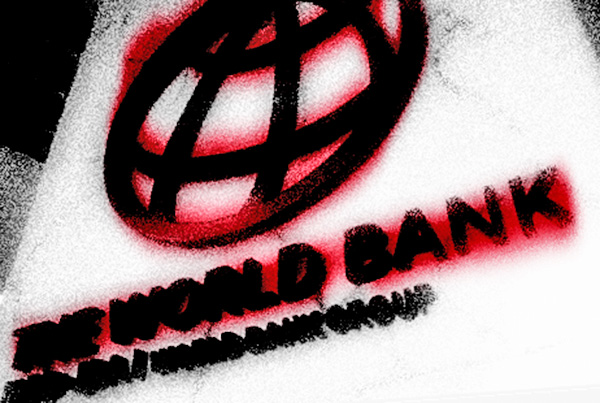
What this connection actually means is clear from the IFC's own
reports.
While boasting that,
since 1956, it has,
"invested more than
$321 billion in emerging markets and developing economies", it
also stresses:
"IFC operates on
a commercial basis. We invest exclusively in for-profit
projects in developing countries". 20
It is not for nothing
that the World Bank/IFC use the slogan,
"Creating Markets,
Creating Opportunities". 21
For all the do-good
language, the bottom line is that,
investment, like
development, is
really about making money and accumulating power...
In this light, it is hardly surprising that the World Bank was an
enthusiastic partner of the UN in pushing its Millennium
Development Goals and its global partnership for greed.
As it admitted:
"The World Bank is
committed to helping achieve the MDGs because, simply put, these
goals are our goals". 22
The World Bank has been
peddling the green-washing scam of so-called "sustainable
development" for quite a while now.
As far back as 1988, its senior vice-president David Hopper
was announcing that it would be getting involved in,
"formulating,
implementing and enforcing environmental policies". 23
And, needless to say, the
World Bank is fully behind the United Nations Sustainable
Development Goals, adopted in 2015 and targeting 2030 as their
completion date.
It declares that these
are,
"an historic global
achievement", boasts that they were "formulated with strong
participation from the World Bank Group" and are, of course,
"fully consistent" with its own dubious goals. 24

In fact, in 2018 it signed a Strategic Partnership Framework with
the UN to push the SDGs and help bring about all sorts of noble
outcomes, such as,
"helping countries
attract and manage private capital" so they can "achieve
measurable results at scale to transform their economies and
societies" and "build human capital". 25
The World Bank/United
Nations - which seem to be so close that they are almost the same
thing - are also keen on,
"enhancing countries'
digital data capacities to improve implementation and maximize
positive development impacts" and "harnessing data to improve
development outcomes".
In reality, the
"sustainable" development they are promoting is every bit of an
oxymoron as "equitable" development, being just another aspect of
the camouflage with which its proponents hide the reality of their
insidious agenda from public view.
As Esteva writes,
"Sustainable
development has been explicitly conceived as a strategy for
sustaining 'development', not for supporting the flourishing and
enduring of an infinitely diverse natural and social life".
26
The real significance of
the UNSDGs is as the administrative foundation of the totalitarian
technocratic dystopia which the money-power is
currently trying to
impose on us.
They essentially amount to the same thing, on a global scale, as the
planning criteria which force local councils to override public
opinion and develop green spaces.
They fix certain development objectives - goals as they term them -
into law so that they have to be imposed on the public, whatever the
views of that public.
But because they don't want this profoundly undemocratic situation
to be visible, they also construct the propaganda layer which aims,
like the propaganda about the need for local "development", to
conceal the true nature of the process.
The propaganda for the UNSDGs amounts to everything "woke" and
"progressive", an official saccharine liberal agenda which has now
crept into every part of our culture.

And, just as people who oppose new roads, railways, factories or
housing estates being built over the countryside are condemned as
being "selfish" or "anti-social", so are opponents of the
SDGs also
condemned as being politically unacceptable.
Because the development mafia depicts itself as representing "good",
all those who go against its agenda must necessarily be "bad":
reactionary, right-wing, conspiracy theorists...
But, in reality, this represents a remarkable inversion of the
truth.
The "goodness" of
development may be enshrined in law and chorused from every
direction, but it is nevertheless non-existent...
The process which calls
itself "development" in fact equates to nothing other than
destruction, in every context.
It is the destruction of nature, now seen as a mere resource to be
used for development or as an empty undeveloped space in which
development could, should and, ultimately, must take place.
It is the destruction of natural human communities, whose
self-sufficiency gets in the way of the advance of development, and
of authentic human culture and traditional values, which are
incompatible with the dogma and domination of development.
In the words of
Ivan Illich:
"Development can be
imagined as a blast of wind that blows people off their feet,
out of their familiar space, and places them on an artificial
platform, a new structure of living". 27
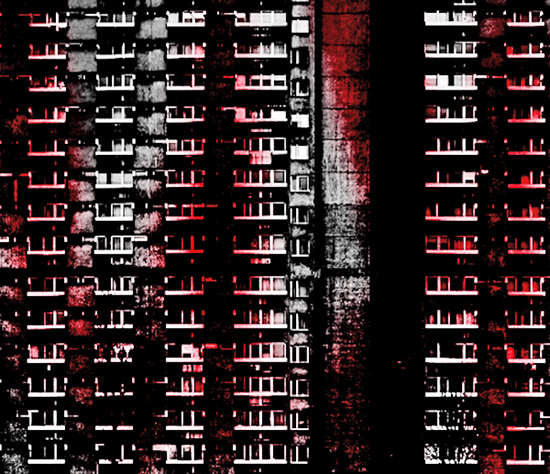
It involves the destruction of individual autonomy, since human
beings are seen as nothing more than human resources, human capital,
to feed the unending appetite of development.
Development also implies the destruction of democracy, as the goals
of development are imposed on us by mechanisms hidden from general
public view.
All in all, development amounts to the negation of all that is
organic, all that is living. It is
vitaphobic.
And why does development exist, what is the purpose behind all this
destruction? It is nothing more than money and power, which are the
same thing in our society.
What is being "developed" in all these various life-destroying ways
is, in fact, the money and power of those who initiated and imposed
the process.
Their money "develops" because they extract a profit from all these
destructive activities and because they lend money, at interest, to
governments in order to "finance" huge projects represented as being
for the common or national good.
Where they got this money from in the first place - whether it is
rightfully theirs or a creation of wealth out of thin air from
dubious bookmaking practices - is another matter.
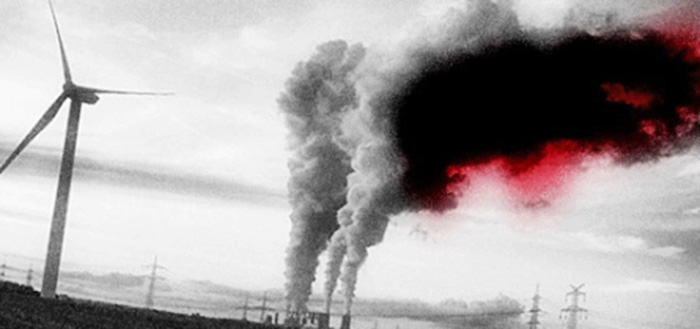
But what is for sure is that debts owed to such financiers give them
even more leverage over governments and the ability to insist on yet
more "development" in order to generate the money needed to keep the
repayments coming.
They will, of course,
be
very happy to "finance" this next phase of development, which is
always lurking on the horizon as a seemingly unavoidable economic
necessity.
This is blackmail on an unimaginably vast scale. Unending, spiraling
blackmail.
Sustainable blackmail...!
So those behind "development" have been destroying everything of
real value in our natural world and our human societies in the
pursuit of personal wealth and power.
And they have taken care to conceal this crime behind all the
positive-sounding rhetoric associated with development on every
level.
Far from being something inherently good, development therefore
represents something which is very close to what we might call
evil.
We have seen so many signs of this evil in all the development we
have been collectively enduring for many centuries.

Rivers turned black
and the air turned toxic by the pollution of industrial
development.
Forests razed, land desecrated, species wiped out by its endless
greed.
Children crushed to death by its machineries, lives ruined and
cut short by decades of thankless toil in its factories, mines
and sweatshops.
Communities across the world ripped from the land, ripped from
each other, ripped from the happy natural lives that should have
been their birthright.
All meaning and value stolen from our existences, everything
reduced to profit and concealed by lies.
As Sachs writes:
"Suspicion grows that
development was a misconceived enterprise from the beginning.
Indeed, it is not the failure of development which has to be
feared, but its success.
What would a
completely developed world look like?" 28
It would simply be a dead
world.
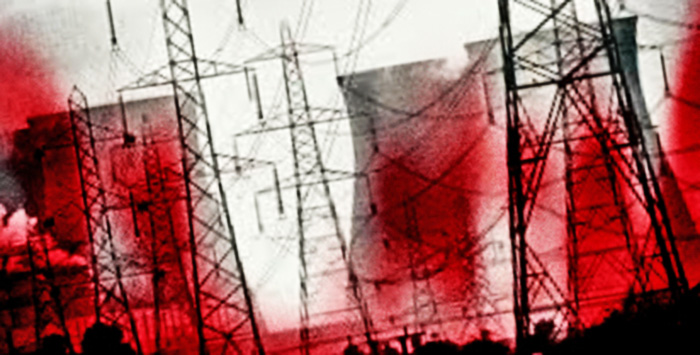
Since 2020, the evil inherent to this development-based system has
become much more visible to many more of us.
We have seen,
people forbidden to gather together, made to cover
their faces with masks, told not to touch each other.
Children have been
prevented from playing together, old people left to die alone
without someone to hold their hand during their final hours,
millions and millions of people reduced to a state of cowering fear
by the manipulative lies of the system as it seeks to ramp up its
malignant control.
This expansion of power is now threatening our very bodies, which it
claims as its own.
It wants to infect us with its gene-altering chemicals, pollute our
bodies with its nanotechnology, control our fertility, imprison us -
"center us", as the United Nations puts it 29 - in
smart
cities, digital concentration camps in which our online virtual
twins are used as lucrative sources of speculation and profit for
impact investment vampires in their psychopathic plans for a whole
new kind of "human development" that is indistinguishable from
slavery.
This thing we call
development is a force of darkness and so to oppose
it we need to harness the power of light.
Light, first of all, to illuminate the truth of
this entity's activities, its destruction, blackmail and
concealment.
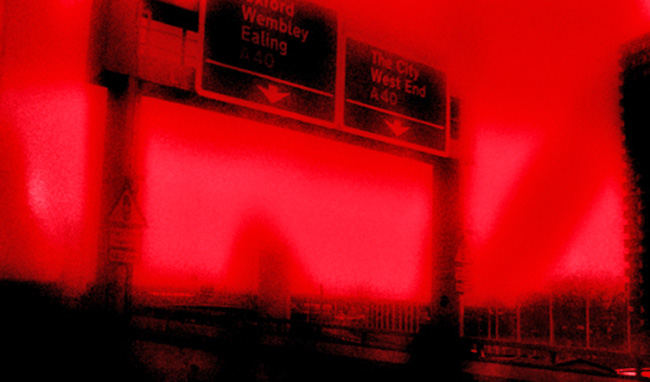
As we have seen, its first line of defense is the pretence that
"development" has no sinister intent and is just an inevitable and
natural part of human evolution.
If we can break
through that line of defense, by exposing its real raw agenda,
its physical power will be visible and thus open to general
attack.
But we also need to
harness the light in what we might call a spiritual sense.
Because development is vitaphobic, we need to summon up the power of
life itself to fight it.
This power is within each and every one of us.
It does not start
with us, but comes to us from the wider living organism of which we
are part, the organism which is being murdered by the dark force of
development.
We can access this vital energy, individually and then collectively,
only if we really want to, if we are prepared to lower all the
barriers of subjectivity and separation behind which we have learned
to hide.
First of all, this means,
searching for our
real selves, which cannot be found in the virtual online
identities currently being constructed for us, of course, nor in
the legal identity given to us by the state, nor even in the
sense of individual identity provided by the ego.
Our real self, we will find, is a self which knows itself to be
merely a part of a greater reality.
We can discover ourselves
to be part of the place where we live, modeled and adapted to the
landscape, the climate, the food that grows there:
we are shaped by this
place and it, in turn, is shaped by us.

We can discover
ourselves to be part of a community, to be surrounded not by
anonymous strangers whom we do our best to avoid, but by fellow
beings who share our belonging to that local place and with whom
we could forge networks of mutual aid, solidarity and autonomy.
We can discover ourselves to be part of the living world, human
nodes in a great network of organic interaction which amounts to
one enormous and unimaginably complex organism.
And we can discover ourselves to be part of the entire universe,
to be one tiny nerve-ending of a living cosmic whole.
It is the vital energy of
this cosmic whole, the energy that animates and propels every facet
of its healthy living, that we might call the light.
We can only draw on this light, this energy, when we know
that it is there.
Knowledge of the
light, however we choose to describe it, involves knowledge of
our belonging, it involves knowledge of unity.
The darkness represented
by development knows only separation and fragmentation.
Its reign of quantity, to
use René Guénon's term,
is based on the idea
of multiplication, of an endless accumulation of objects,
possessions, so-called wealth.
But within a given finite
context, such as our world, this multiplication can only amount to
division:
it merely slices up
the existing unity into billions of smaller pieces, cut off from
each other and from the whole.
The light, the knowledge
of unity, gives us the power to combat that fragmentation and
restore the reign of quality and living authenticity.
We need to allow ourselves to be flooded by this light, to be
taken over by it and used by it in whatever way is necessary to free
our world from the vile and all-destroying monster which goes by the
name of "development"...
AUDIO
Post-recorded Audio Version
NOTES
-
Wolfgang
Sachs, 'Preface to the New Edition’,
The Development Dictionary: A Guide to Knowledge as Power,
ed. Wolfgang Sachs (London/New York, Zed Books, 2010), p.
vii.
-
Sachs,
'Preface to the New Edition’, The Development Dictionary,
p. vii.
-
Gustavo
Esteva, 'Development’, The Development Dictionary,
p. 2.
-
Esteva, p.
3.
-
Esteva, p.
3.
-
Otto
Ulrich, 'Technology’, The Development Dictionary,
p. 320.
-
https://www.oecd.org/
-
https://www.rothschildandco.com/en/about-us/our-story/
-
Preamble to
the Charter of the United Nations, New York: UN Office of
Public Information, 1968). cit. Wolfgang Sachs, 'One World’,
The Development Dictionary, p. 112.
-
UNRISD,
The Quest for a Unified Approach to Development
(Geneva: UNRISD, 1980), cit. Estava, p. 10.
-
un.org/en/events/righttodevelopment/declaration.shtml
-
http://hdr.undp.org/en/content/what-humandevelopment
-
https://en.wikipedia.org/wiki/Millennium_Development_Goals
-
https://www.un.org/millenniumgoals/pdf/Goal_8_fs.pdf
-
https://www.worldbank.org/en/programs/sdgs-2030-agenda
-
https://www.worldbank.org/en/about/history
-
Klaus
Schwab, Thierry Malleret, Covid-19: The Great Reset
(Geneva: WEF, 2020), e-book. Edition 1.0, 5%
-
World Bank,
Assault on World Poverty (Baltimore, Md.: Johns
Hopkins University Press, 1975), cit. Arturo Escobar,
'Planning’, The Development Dictionary, pp. 152-53.
-
https://www.worldbank.org/en/about/history
-
https://www.ifc.org/wps/wcm/connect/corp_ext_content/ifc_external_corporate_site/home
-
Link is missing...
-
Link is missing...
-
Link is missing...
-
Link is missing...
-
Link is missing...
-
Link is missing...
-
Link is missing...
-
Link is missing...
-
Link is missing...
|






















